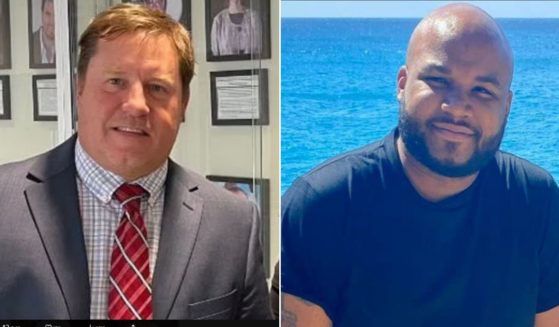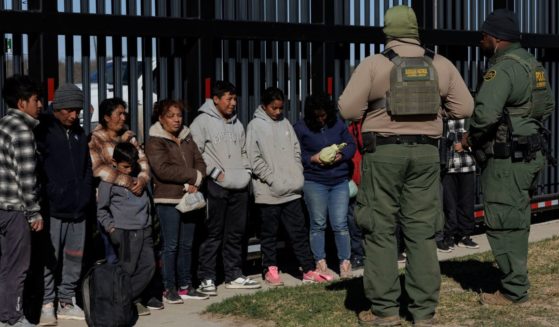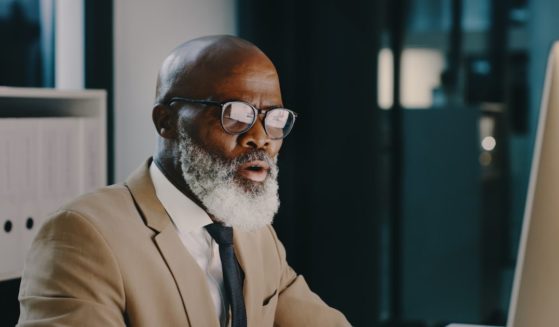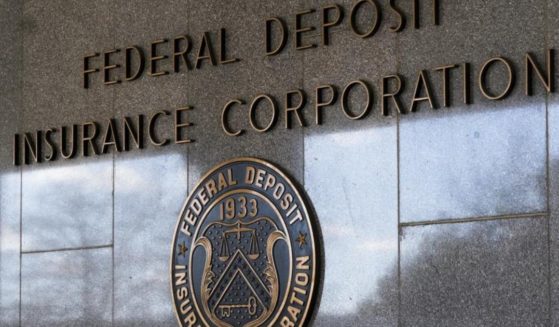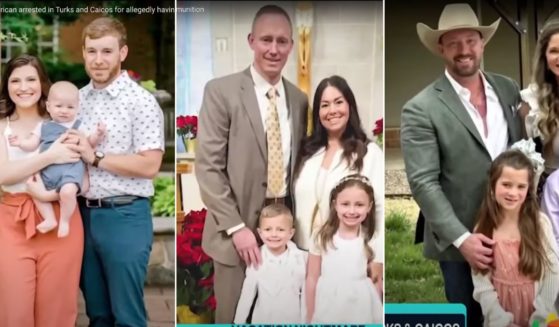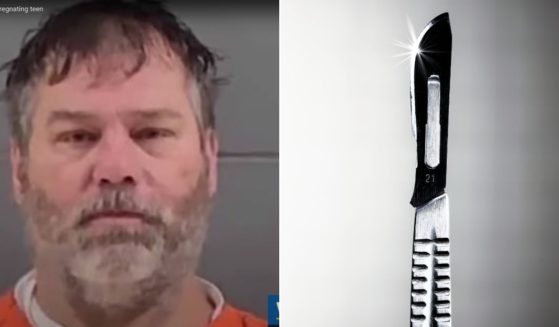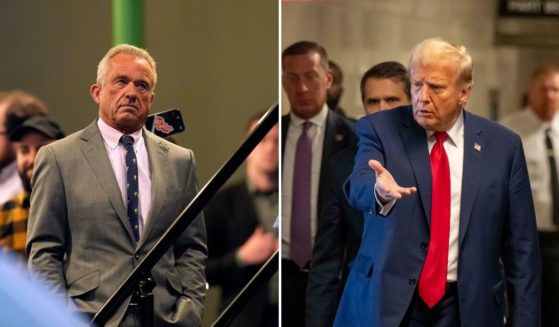Hollywood to Release Sinister 'Civil War' Movie Just Before 2024 Election
In the case of one upcoming movie, we should pray that art does not anticipate life.
Wednesday on X, formerly Twitter, the independent entertainment company A24 released the official trailer for “Civil War,” a feature film scheduled for release in spring 2024.
The action-packed and tension-building trailer implied a full-blown civil war in the United States and depicted many elements often associated with such brother-against-brother conflicts.
Written and directed by Alex Garland, “Civil War” takes place in what looks like a present-day setting. Nothing in the trailer, for instance, implied anything futuristic.
In fact, in a July 2022 interview with Screen Daily, Garland described “Civil War” as “a contemporary war movie.”
The trailer began with a series of different voices making what sounded like urgent radio announcements in journalist-sounding tones.
“Nineteen states have seceded. The United States Army ramps up activity. The White House issued warnings to the Western Forces as well as the Florida Alliance. The three-term president assures the uprising will be dealt with swiftly,” the announcers said.
Then, the film’s protagonist — a war correspondent played by Kirsten Dunst — walked into a clothing store with two other people. Dunst’s male companion, surprised by the store’s serene atmosphere, asked a young woman behind the counter if she had heard of the “pretty huge civil war going on all across America.”
“We just try to stay out. With what we see on the news, seems like it’s for the best,” the young woman replied.
Thus, in its opening seconds, the trailer presented familiar aspects of civil war such as secession and neutrality.
From there, however, things grew more confusing — and darker.
A brief shot of the American flag, for instance, showed the traditional smaller 50 stars replaced by two larger ones.
Then came a voice-over from the “three-term president,” played by Nick Offerman.
“Citizens of America, the so-called ‘Western Forces’ of Texas and California have suffered a very great defeat at the hands of the United States military,” the president said.
In the next scene, a journalist asked the president if he regretted “the use of airstrikes against American citizens.”
Moments later, a run-in with a light-haired, weapon-wielding soldier proved harrowing for Dunst and her companions.
“We are American, OK?” the male companion said to the soldier.
“OK. What kind of American are you?” the unimpressed and menacing-sounding soldier asked.
Action scenes and dramatic music dominated the rest of the trailer. Interspersed with those scenes, however, the following words appeared, one by one: “ALL. EMPIRES. FALL.”
Finally, again came Offerman’s voice.
“One nation. Under God. Indivisible. With liberty. And justice for all. God Bless America,” the three-term president said, followed by the sound of screams.
“Civil War” will hit theaters on April 26.
“In this land, anything is possible. Welcome to Alex Garland’s CIVIL WAR. In theaters and @IMAX. April 26,” A24 wrote in a tweet accompanying the trailer.
In this land, anything is possible. Welcome to Alex Garland’s CIVIL WAR. In theaters and @IMAX April 26. pic.twitter.com/5PG8bKGMaW
— A24 (@A24) December 13, 2023
On social media, reaction came swiftly. And much of it expressed suspicion about the film’s timing in light of America’s present political situation.
Clandestine, a prominent account with more than 380,000 followers on X, sensed veiled intimidation.
“Looks to me like they are trying to normalize something. Or make Americans believe that the US government would air strike American citizens. Propaganda in some capacity,” Clandestine tweeted.
Looks to me like they are trying to normalize something.
Or make Americans believe that the US government would air strike American citizens.
Propaganda in some capacity.
— Clandestine (@WarClandestine) December 13, 2023
DC_Draino, an even larger account at more than 1.3 million followers, cried hypocrisy.
“Media: Trump supporters are inciting threats to our democracy! Hollywood: *makes mass-distributed movie about Civil War in America*,” DC_Draino tweeted.
Media: Trump supporters are inciting threats to our democracy!
Hollywood: *makes mass-distributed movie about Civil War in America* https://t.co/U6vQqv1tWf
— DC_Draino (@DC_Draino) December 13, 2023
One user detected a pattern based on another recent film.
“First Obama’s Cyberattack movie and now this. Think they’re trying to tell us something?” the user tweeted.
First Obama’s Cyberattack movie and now this. Think they’re trying to tell us something? #civilwar releases April 2024 pic.twitter.com/9Zg0omLI6x
— The Prepared Homestead (@ThePreparedHom1) December 13, 2023
Barack and Michelle Obama helped produce “Leave the World Behind,” which began streaming on Netflix Dec. 8. In the Obamas’ film, a massive cyberattack plunged America into chaos.
“Why on earth would a former president of the United States be behind a movie that envisions the destruction of America and civil war?” Diamond and Silk tweeted on Tuesday.
Why on earth would a former president of the United States be behind a movie that envisions the destruction of America and civil war? #diamondandsilk https://t.co/DAjUQx5BQN
— Diamond and Silk® (@DiamondandSilk) December 12, 2023
In light of how 2020 unfolded, one can hardly blame Americans for feeling jittery about the upcoming election year.
After all, the most tyrannical administration in U.S. history — that of President Joe Biden — still has more than a year remaining. Indeed, Americans have good reason to suspect and detest high officials in their own government.
Thus, the “Civil War” trailer undoubtedly struck a nerve with many.
On one hand, we should not clutch pearls over the film’s basic plot. A Texas-California alliance of “Western Forces,” for instance, does not appear derived from contemporary political realities.
Until we know more about what prompted those 19 states to secede and how Offerman’s character came to serve three terms as president, we cannot even infer connections to modern politics.
On the other hand, viewers might have strong reactions to the film’s trailer for a reason. The events it depicted seem indefinably — yet palpably — more plausible than they would have 10 years ago.
At the end of the climactic scene in Steven Spielberg’s “Amistad” — a 1997 film about a group of African slaves who became the subject of a celebrated case decided by the U.S. Supreme Court in 1841 — attorney and former President John Quincy Adams, played by legendary actor Anthony Hopkins, delivered a memorable line about slavery and the conflict it threatened.
“Give us the courage to do what is right. And if it means civil war, then let it come. And when it does, may it be, finally, the last battle of the American Revolution,” Adams declared to the court while speaking on behalf of the Africans.
It made for dramatic entertainment, but it never happened. The conclusion to Adams’ actual 1841 argument, in fact, featured no such casual and high-minded invitation to bloodshed.
Therein lay a lesson — perhaps a reassuring one. In short, sensible people who might have reason to expect civil war never treat the subject with such glibness.
We may rightly say “have courage,” but we never say “let it come,” for we pray it never does.
Truth and Accuracy
We are committed to truth and accuracy in all of our journalism. Read our editorial standards.

